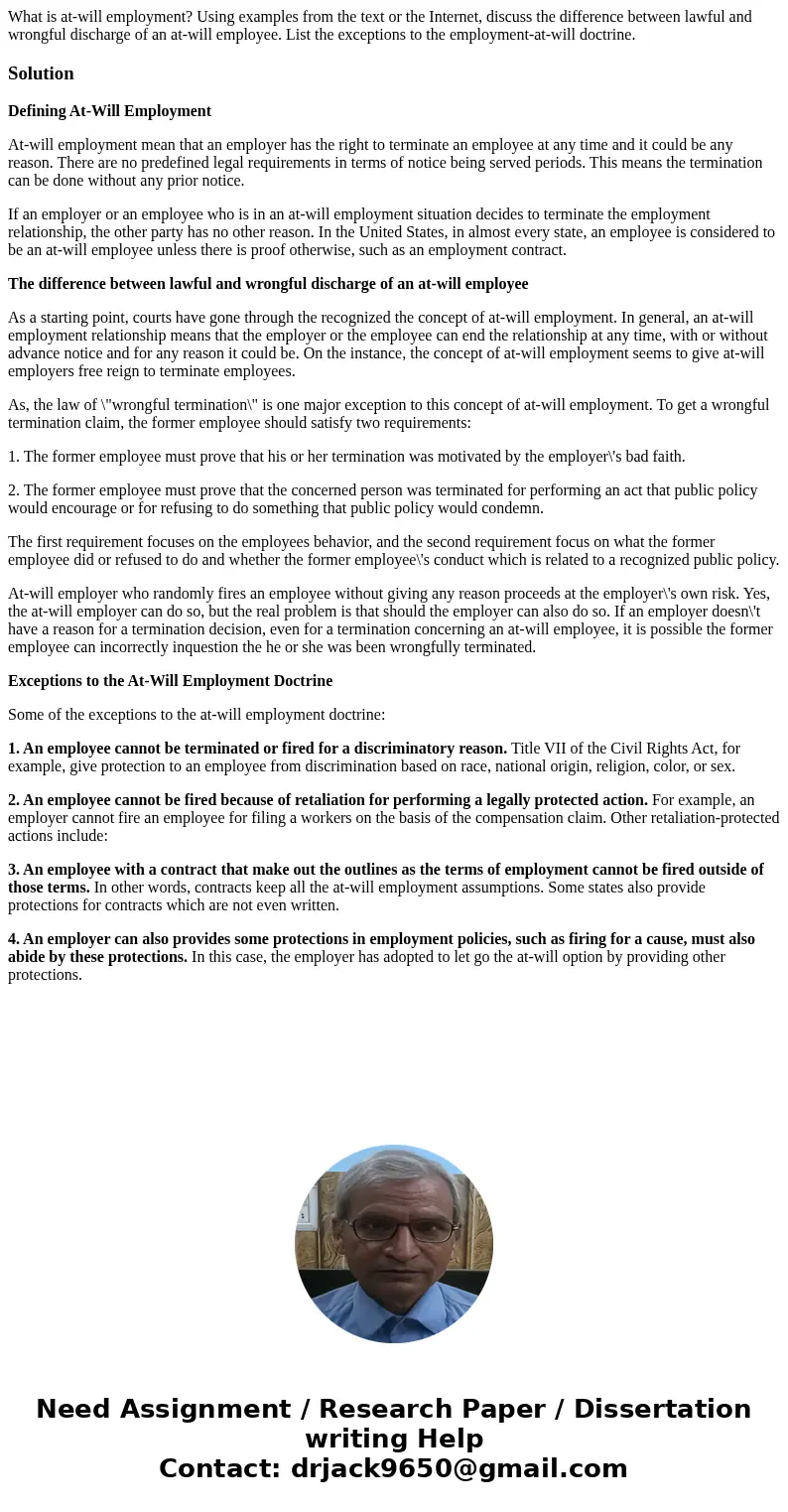What is atwill employment Using examples from the text or th
What is at-will employment? Using examples from the text or the Internet, discuss the difference between lawful and wrongful discharge of an at-will employee. List the exceptions to the employment-at-will doctrine.
Solution
Defining At-Will Employment
At-will employment mean that an employer has the right to terminate an employee at any time and it could be any reason. There are no predefined legal requirements in terms of notice being served periods. This means the termination can be done without any prior notice.
If an employer or an employee who is in an at-will employment situation decides to terminate the employment relationship, the other party has no other reason. In the United States, in almost every state, an employee is considered to be an at-will employee unless there is proof otherwise, such as an employment contract.
The difference between lawful and wrongful discharge of an at-will employee
As a starting point, courts have gone through the recognized the concept of at-will employment. In general, an at-will employment relationship means that the employer or the employee can end the relationship at any time, with or without advance notice and for any reason it could be. On the instance, the concept of at-will employment seems to give at-will employers free reign to terminate employees.
As, the law of \"wrongful termination\" is one major exception to this concept of at-will employment. To get a wrongful termination claim, the former employee should satisfy two requirements:
1. The former employee must prove that his or her termination was motivated by the employer\'s bad faith.
2. The former employee must prove that the concerned person was terminated for performing an act that public policy would encourage or for refusing to do something that public policy would condemn.
The first requirement focuses on the employees behavior, and the second requirement focus on what the former employee did or refused to do and whether the former employee\'s conduct which is related to a recognized public policy.
At-will employer who randomly fires an employee without giving any reason proceeds at the employer\'s own risk. Yes, the at-will employer can do so, but the real problem is that should the employer can also do so. If an employer doesn\'t have a reason for a termination decision, even for a termination concerning an at-will employee, it is possible the former employee can incorrectly inquestion the he or she was been wrongfully terminated.
Exceptions to the At-Will Employment Doctrine
Some of the exceptions to the at-will employment doctrine:
1. An employee cannot be terminated or fired for a discriminatory reason. Title VII of the Civil Rights Act, for example, give protection to an employee from discrimination based on race, national origin, religion, color, or sex.
2. An employee cannot be fired because of retaliation for performing a legally protected action. For example, an employer cannot fire an employee for filing a workers on the basis of the compensation claim. Other retaliation-protected actions include:
3. An employee with a contract that make out the outlines as the terms of employment cannot be fired outside of those terms. In other words, contracts keep all the at-will employment assumptions. Some states also provide protections for contracts which are not even written.
4. An employer can also provides some protections in employment policies, such as firing for a cause, must also abide by these protections. In this case, the employer has adopted to let go the at-will option by providing other protections.

 Homework Sourse
Homework Sourse